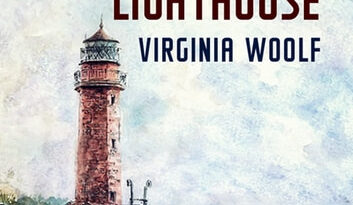Rudyard Kipling and His Poems
Rudyard Kipling (1865–1936) remains one of the most complex and debated figures in English literature. Known worldwide as the author of The Jungle Book and the creator of enduring characters like Mowgli, Kipling was also a prolific poet whose verse captured the spirit of an age marked by empire, industrial progress, and profound cultural tensions. His poetry blends traditional storytelling with striking rhythms and often controversial themes, making him a voice that continues to provoke reflection more than a century later.
Early Life and Influences
Born in Bombay (now Mumbai), Kipling spent his earliest years surrounded by the sights, sounds, and languages of colonial India. This early immersion in a multicultural environment deeply shaped his imagination and later informed much of his writing. After being sent to England for schooling, he returned to India as a young journalist, a career that exposed him to both the glamour and the harsh realities of the British Empire. His experience as a reporter sharpened his eye for detail and gave his poetry a journalistic clarity that set it apart from the more abstract or romantic verse of his contemporaries.
Style and Themes
Kipling’s poetry is notable for its accessibility. He often wrote in a plain, rhythmic style that echoed the cadence of popular songs and ballads, allowing his work to reach audiences far beyond elite literary circles. While some critics dismissed his verse as too simple, others praised his ability to capture the energy of working men, soldiers, and ordinary people whose voices rarely appeared in high literature.
Common themes in his poems include:
-
Empire and Duty: Works such as The White Man’s Burden and Recessional reveal his deep engagement with Britain’s imperial project, often celebrating its ideals while simultaneously warning of arrogance and decline.
-
Soldier Life: Collections like Barrack-Room Ballads give voice to common soldiers, using colloquial speech and humor to portray their hardships, loyalty, and resilience.
-
Moral Lessons: Perhaps his most famous poem, If—, remains a classic meditation on personal integrity, resilience, and maturity, offering timeless advice to young readers.
-
Childhood and Imagination: Echoing the spirit of The Jungle Book, some of his lighter poems draw on folklore, myth, and playful storytelling.
Legacy and Controversy
Kipling’s position as a poet of empire makes his work both celebrated and criticized. He won the Nobel Prize in Literature in 1907, becoming the first English-language writer to receive the honor. Admirers see him as a master craftsman whose verse combined musicality, moral clarity, and narrative power. Critics, however, point to the imperialist undertones of many poems, viewing him as a spokesman for colonial ideology.
Today, his poetry invites readers to engage with these complexities rather than ignore them. On one hand, his work reflects the values of his time; on the other, it continues to challenge and inspire through its craftsmanship and emotional intensity.
Why Read Kipling’s Poems Today?
For modern readers, Kipling’s poetry offers:
-
A window into the mindset of late 19th- and early 20th-century Britain.
-
Vivid portrayals of ordinary lives, especially those of soldiers and workers.
-
Memorable language and rhythms that make his verses easy to recall and recite.
-
Moral reflections that, despite their historical context, still resonate with questions of responsibility, resilience, and integrity.
Rudyard Kipling’s poems cannot be separated from the debates about empire and history, but neither can they be dismissed. They stand as both a product of their age and as works of enduring literary power. Reading Kipling today means engaging not only with the beauty of his verse but also with the uncomfortable questions his work raises. Whether admired, critiqued, or read with caution, his poems remain a vital part of world literature—an invitation to think about art, history, and the values we choose to carry forward.



